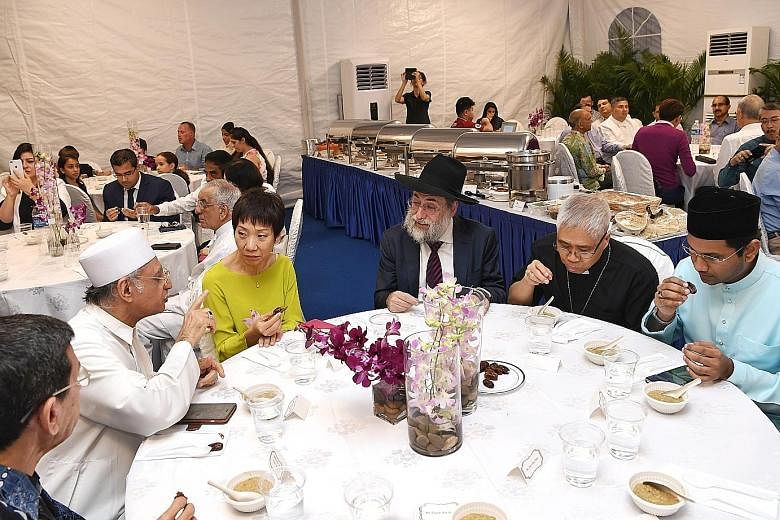Non-kosher food is not allowed on the grounds of a synagogue. So how did the Maghain Aboth Synagogue in Waterloo Street host iftar - its first inter-faith event on its premises last month?
After much deliberation, and with the desire to make their Muslim friends feel at home, the Jews agreed to have halal food brought into the compound. But in doing so, they had to make a series of adjustments to their usual practice.
Already a subscriber? Log in
Read the full story and more at $9.90/month
Get exclusive reports and insights with more than 500 subscriber-only articles every month
ST One Digital
$9.90/month
No contract
ST app access on 1 mobile device
Unlock these benefits
All subscriber-only content on ST app and straitstimes.com
Easy access any time via ST app on 1 mobile device
E-paper with 2-week archive so you won't miss out on content that matters to you

